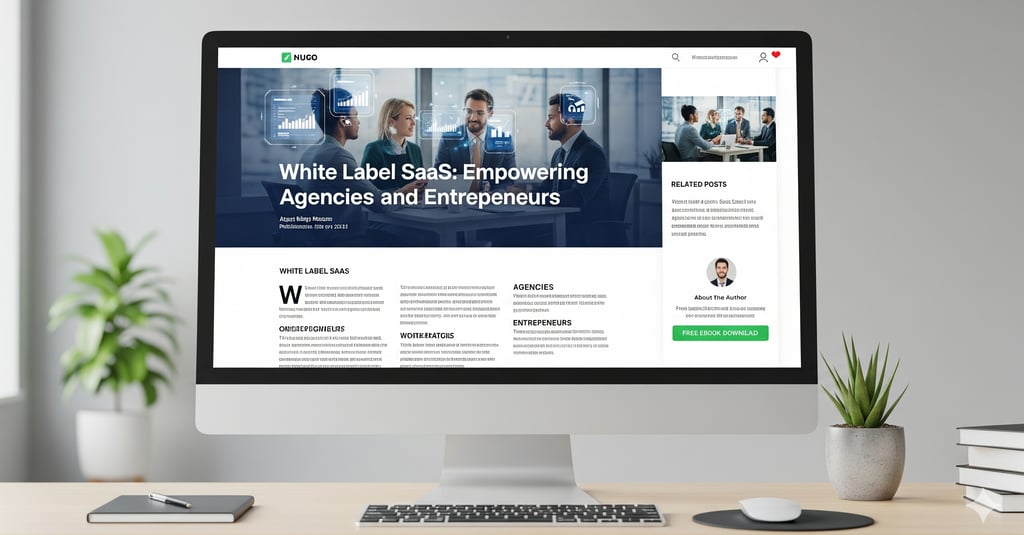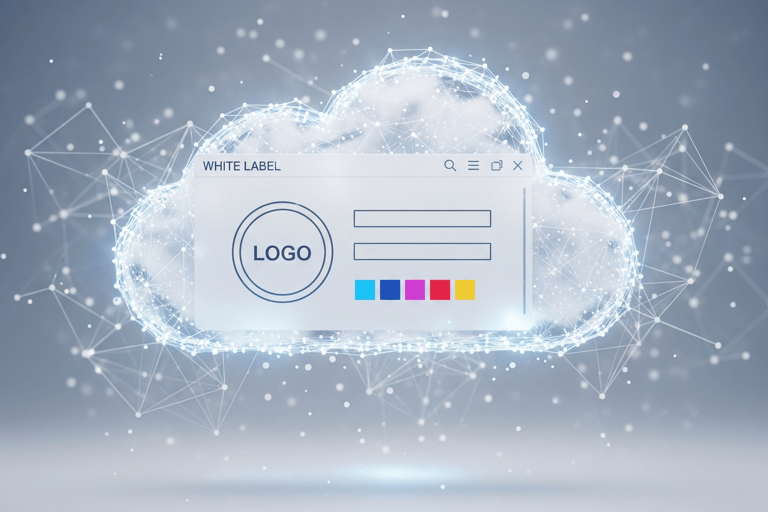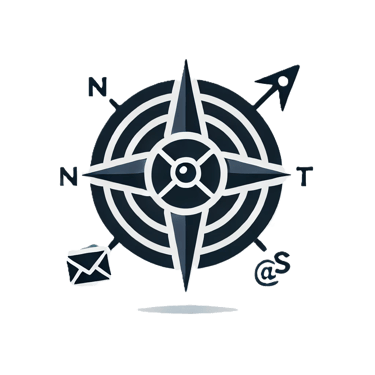White Label SaaS: The Ultimate Guide for Agencies & Entrepreneurs
What is White Label SaaS? How does it work? Discover the benefits, use cases, and how to choose the right platform to scale your business without building from scratch.
WHITE LABEL SAAS
White Label SaaS: The Ultimate Guide for Agencies & Entrepreneurs
Introduction
If you're an agency owner, marketer, or entrepreneur looking to scale your service offerings quickly, you've likely heard the term "White Label SaaS." It’s a powerful business model that is revolutionizing how companies go to market.
But what exactly does it mean? How does it work? And more importantly, is it the right strategy for your business?
This definitive guide will break down everything you need to know about White Label Software as a Service. By the end, you'll have a clear understanding of the concept, its immense benefits, potential pitfalls, and a framework for choosing the perfect platform.
What is White Label SaaS?
White Label SaaS is a business model where a company develops a software product and allows other businesses to rebrand and resell it as their own.
Think of it like this: A manufacturer produces a high-quality, generic cereal. A grocery store chain then buys it in bulk, puts it in their own packaging with their own brand name, and sells it on their shelves. The manufacturer made the product, but the grocery store owns the customer relationship and the brand experience.
In the digital world:
The manufacturer is the White Label SaaS provider (e.g., a company that builds a powerful email marketing tool).
The grocery store is your agency or business (e.g., a digital marketing agency).
The cereal is the software platform.
You rebrand it with your logo, colors, and domain name.
You resell it to your clients under your own brand.
How Does White Label SaaS Work?
The process is typically streamlined and involves three key players:
The Provider: This company invests the time and capital into researching, developing, and maintaining a sophisticated software application. They handle all the headaches: coding, updates, security, server hosting, and technical support.
The Reseller (You): You partner with the provider, paying a monthly or annual fee (often per user or client). You then apply your branding to the platform. This isn't just a logo swap; a good white-label solution will feel 100% like your product from the user's perspective.
The End Client: Your client uses the software, believing it was built by you. They pay you directly, and they come to you for all training and support. You are their single point of contact.
Key Benefits of Adopting a White Label SaaS Model
You might be thinking: "But with modern no-code tools, can't I just build my own software quickly?" It's a great question. The key is understanding the difference between building a product and scaling a service.
White Label SaaS isn't about building; it's about commercializing. Here’s why it’s a powerful strategy
1. Unmatched Speed to Market
While building a Minimum Viable Product (MVP)—even with no-code platforms—can take weeks or months of focused work, White Label offers instant deployment. On Monday you sign up, on Tuesday you customize the platform with your brand, and by Wednesday you can be selling to your clients. You're not launching a basic product; you're offering a complete, mature, and market-ready solution from day one.
2. Predictable Cost & Zero Technical Risk
Building software, at any level, has hidden costs: platform subscriptions, hosting, integrations, and most crucially, the valuable time you and your team spend building and maintaining it—time that could be invested in sales and marketing.
The White Label model transforms all these variable costs and surprises into a simple, predictable monthly fee. All technical risk—bugs, security, scalability, and downtime—is 100% handled by the provider. Your risk remains solely where it should be: in your ability to market and sell, not in your ability to develop.
3. Revenue Diversification & Recurring Income
Move beyond one-time project fees. White labeling allows you to create a lucrative Monthly Recurring Revenue (MRR) stream, which creates a more stable and predictable business model.
4. Enhanced Brand Authority & Client Stickiness
Offering a proprietary tool makes your agency seem more established and innovative. It also deeply embeds your service into your client's operations, increasing retention and reducing churn.
5. Focus on Your Core Competency
You are an expert at marketing, sales, and client management—not necessarily at writing code or managing servers. This model lets you focus on what you do best while leveraging the technical expertise of the provider.
White Label vs. Building Your Own (Even with No-Code)
It's true! Amazing no-code tools now allow anyone to build an app. So, why would you choose a White Label solution?
The right choice depends entirely on your primary goal. Use the comparison below to identify the best path for your business.
Option 1: White Label SaaS
Your Primary Goal: SELL a Software Service
Your Focus: Marketing, Sales, and Client Relationships
Time to Market: Days. You can launch a mature product instantly.
Your Risk: Market Risk (can you sell it?)
Best For: Agencies, consultants, and resellers who already have a client base.
Option 2: Building from Scratch (No-Code/Low-Code)
Your Primary Goal: BUILD a Software Product
Your Focus: Development, Design, and Product Management
Time to Market: Months. You'll need to build, test, and iterate an MVP (Minimum Viable Product).
Your Risk: Technical & Market Risk (will it work? will customers buy it?)
Best For: Entrepreneurs and product builders with a unique software idea.
Common White Label SaaS Use Cases & Examples
This model is versatile across many industries. Some of the most popular white-label solutions include:
Digital Marketing Agencies: Email marketing platforms, SEO reporting tools, social media schedulers, ad management platforms.
CRM & Sales Teams: Sales automation tools, client portal software, proposal and contract platforms.
Web Hosting & IT Firms: Website builders, security monitoring software, backup solutions.
Business Coaches & Consultants: Membership site software, course hosting platforms, assessment and survey tools.
How to Choose the Right White Label SaaS Provider: A 6-Point Checklist
Not all white-label providers are created equal. Choosing the wrong partner can be a nightmare. Here’s what to evaluate:
Depth of Branding: Can you truly customize everything? Look for custom domains (tool.yourcompany.com), full logo integration, color schemes, and even the ability to remove all mentions of the provider.
Product Quality & Roadmap: Is the software actually good? Use it yourself. Is it intuitive and powerful? Also, ask about their product roadmap. Are they continuously innovating?
Pricing Structure: Understand the pricing model. Is it per user? per client? Is it scalable? Watch out for hidden fees or exorbitant charges for adding new clients.
Support & SLAs: Who supports your clients? Do you have to handle tier-1 support, or does the provider offer white-label support on your behalf? What are their Service Level Agreements (SLAs) for uptime?
Contract Flexibility: Read the terms carefully. Are you locked into a long-term contract? What are the terms for ending the partnership?
Reputation & Reviews: Research the company. Read reviews from other resellers. Are they known as a reliable and trustworthy partner?
Potential Drawbacks to Consider
Lower Profit Margins: You're sharing revenue with the provider, so your margin on the software itself will be lower than if you built it yourself.
Less Control: You have little to no control over the product's core features, update schedule, or design changes.
Provider Risk: If the provider goes out of business or has a major security breach, your business and reputation are on the line.
Final Verdict: Is White Label SaaS Right For You?
White Label SaaS is a powerful growth lever for the right business.
It is an excellent choice if you:
Want to scale your service offerings quickly.
Lack the technical resources or desire to build and maintain your own tool.
Have an existing client base that would benefit from a software solution.
Are excellent at sales, marketing, and client relationships.
It might not be the right fit if:
You require a completely unique, bespoke software with proprietary features that don't exist.
Your business model depends on having 100% control over the product development roadmap.
Your goal is to build and sell a software company itself.
For most agencies and service-based businesses, the benefits of instant speed, reduced risk, and the ability to create recurring revenue far outweigh the drawbacks.
Understanding the theory is the first step. Taking action is the next.
If you're ready to see a complete, done-for-you white-label system in action—including the software, funnels, and sales processes—Russell Brunson's free training, "The Last Secret," provides a real-time demonstration of how it's possible to launch your own SaaS in record time.
>> Watch the FREE "The Last Secret" Training Here




Blog
Designed to support entrepreneurs and marketers worldwide
© 2025. All rights reserved.
